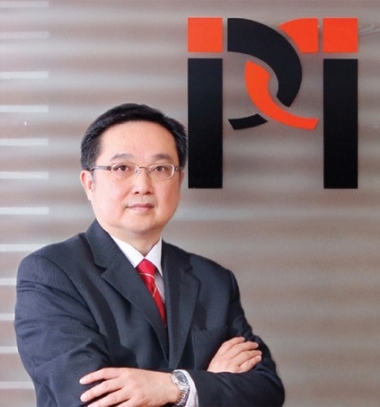[Updtaed with extra information and judge comments]
Former Macau Trade and Investment Promotion Institute (IPIM) President, Jackson Chang, has been handed a two-year effective prison sentence for breach of secrecy and inexact asset declaration but was acquitted of abuse of power, corruption and criminal association charges by the Court of First Instance (TJB).
Chang faced charges of four crimes of passive corruption for illicit acts, six of money laundering, three of abuse of power, three of inaccuracy in the declaration of income and also of criminal association and violation of secrecy related to the granting of residency status through investment schemes.
The case was first revealed in 2018 when the Commission Against Corruption (CCAC) published a report on the alleged illegal residence scheme, with Chang placed in pre-trial detention since July 2019.
The prosecution made the case that the former president of IPIM provided illegal support for immigration requests and promoted the approval of those ‘false’ immigration requests, with a local couple in charge of creating companies, fictitious investment projects and false information regarding the applicants’ professional experience.
More than 70 witnesses were heard during the trial, including 10 CCAC investigators, or current and former employees at IPIM, including former IPIM director Irene Lau, who succeeded Chang in the position.
Despite several bank transfers, computer data, documents and phone conversations being presented the court considered that there was not enough evidence to prove that the former IPIM head received illicit gains from any assistance provided to other defendants during the residence application process.
However, presiding judge Leong Fong Meng issued a stern assessment of Chang’s conduct in her final allegations, stating that as IPIM President he should have respected the department’s internal regulations.
A lot of the case revolved around if the information provided by IPIM employees to assist applicants in obtaining a residence permit was confidential or of public access.
“You have chosen to not make any comment and expressed no regret for your actions. You ignored the department’s guidelines and used your functions to provide confidential data, and with your behaviour tarnished the department’s image […]. There is not enough evidence to say you committed an act of corruption. If you committed it, only you would know,” judge Leong stated.
Meanwhile, Chang’s wife Angela Ip On Kei and his daughter Crystal Chang Sin Man were both acquitted from the charges of money laundering.
The prosecution had accused Angela Ip and Crystal Chang of having a fictional job at a firm owned by businessman Ng Kuok Sao, who saw the court hand him a heavy 18 years sentence as Ng was found guilty of criminal association, producing fake documents, among others.
However, the prosecution failed to prove their job functions were created as a way to benefit Chang and provide a point of contact for the scheme.
Ng’s wife, Wu Shu Wa, has been sentenced to a 12 year prison term. The local business couple were found guilty of running an illegal residence scheme and several other entrepreneurs and people who allegedly benefited from undue residence assignment.
The court has also sentenced former IPIM Executive Director, Gloria Batalha Ung, was sentenced to one year and nine months in jail over charges of abuse of power and breach of secrecy.
Former IPIM’s Residency Application and Legal Affairs Division chief, Miguel Ian Iat Chun, was found guilty of secrecy breach and of producing fake documents connected to the residence applications and has been sentenced to four years in jail.
Since Jackson Chang and Gloria Ung have been sentenced to crimes that do not entail a prison sentence higher than three years they will be able to be released from prison while they wait for a further appeal decision, after paying MOP100,000 in bail.
Chang’s defence team stated after the verdict that they are assessing if they will appeal the decision, with Ung’s lawyer Pedro Leal expressing an appeal will certainly be made.
In total, the case involved 26 defendants, most of which were tried in absentia and with the remaining defendants – which included businessmen and their relatives said to have benefitted from the scheme – sentenced to different prison sentences.




















